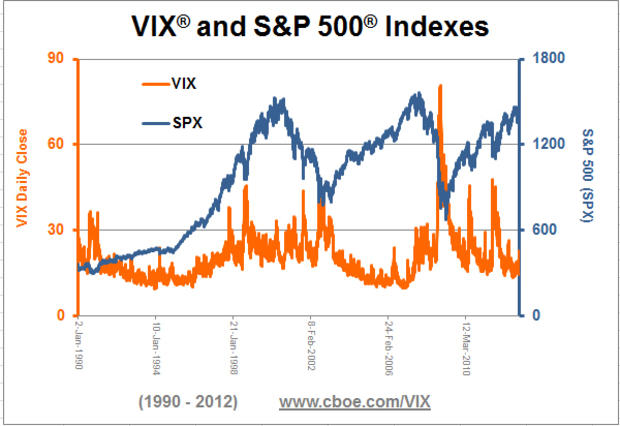Stocks hit 5-year highs: Time to sell?
(MoneyWatch) Have investors finally scaled the so-called "wall of worry" and resumed their love affair with stocks? Just as the S&P 500 index settled at five-year highs, investors poured $7.53 billion into stock mutual funds in the week ended Jan. 9, the largest amount in over a dozen years, according to Lipper. Additionally, investors pumped $10.78 billion into stock exchange-traded funds, for a total of $18.32 billion into stock funds overall, the biggest lump sum of cash into the asset class since mid-2008.
Perhaps the movement back into stocks is a simple reaction to the fiscal cliff deal. Many nervous investors pulled money out of their accounts until they were sure about future tax rates. Now, with the matter settled, they are rotating back into the market. (One has to wonder why these people are not worried about the upcoming debt ceiling fight; looming government spending cuts; and reduction in economic growth as a result of the resumption of the full 6.2 percent payroll tax, but there's at least 3 or 4 weeks before they have to face those fears!)
A less generous reading of the weekly bump in stock investing is that retail investors can often be contra-indicators of future trends, pulling money out of markets at the lows and jumping in at the highs. After all, with stocks up over 100 percent since the 2009 lows, investors feel confident now? Many traders warn that confidence can sometimes be confused with complacency; and right now complacency appears to be rising, at least as reflected by one indicator. The S&P 500 volatility index or "VIX" measures the expected swings in the U.S. stock market over the next 30 days. When investor anxiety is running high, the VIX will generally rise, which is why it is often referred to as the "fear index". Conversely, when confidence increases, the VIX usually drops. That said, the VIX has not been a perfect predictor for stock market moves.
Last week, the VIX fell to 13.22, the lowest intraday level since June 2007, before closing at 13.36. In the four years since the VIX peaked at 80.86, it has plummeted 80 percent. Clearly, investors were rightly spooked in 2008, when the financial system was perched on the precipice of disaster. But are they being a bit too calm in the face of what is likely to be a slow growth year ahead?
Maybe fourth quarter earnings season will be better than the expected 3 percent increase from a year ago, but more likely, the trend of stalled revenue growth will niggle at investors, prompting them to wonder whether they should be a bit more defensive. With stock market volatility at multi-year lows, stock prices at multi-year highs and retail investors returning to stocks en masse, now might be a perfect time to conduct rebalancing and batten down the hatches.
-- DJIA: 13,488 up 0.4 percent on week, up 2.9 percent on year
-- S&P 500: 1,472, up 0.4 percent on week, up 3.2 percent on year (6 percent below all-time high of 1,565, reached in 10/07)
-- NASDAQ: 3,125, up 0.8 percent on week, up 3.5 percent on year
-- February crude oil: $93.56, up 0.5 percent on week
-- February gold: $1,660.60, up 0.7 percent on week
-- AAA nat'l average price for gallon of regular gas: $3.31
THE WEEK AHEAD: Here come the bank earnings!
Mon 1/14:
Tues 1/15:
8:30 Producer Price Index
8:30 Retail Sales
8:30 Empire State Manufacturing Survey
10:00 Business Inventories
Weds 1/16:
Goldman Sachs, JP Morgan Chase, Bank of NY/Mellon, US Bancorp, Charles Schwab
8:30 Consumer Price Index
9:15 Industrial Production
10:00 Housing Market Index
2:00 Fed Beige Book
Thurs 1/17:
Bank of America, Citigroup, Capital One, Intel
8:30 Weekly Claims
8:30 Housing Starts
10:00 Philadelphia Fed Survey
Fri 1/18:
GE, Schlumberger, Morgan Stanley
9:55 Consumer Sentiment
